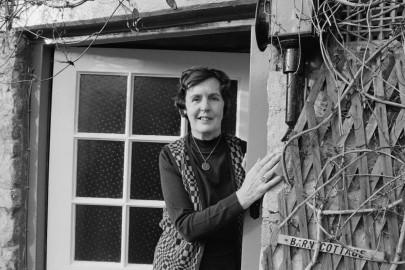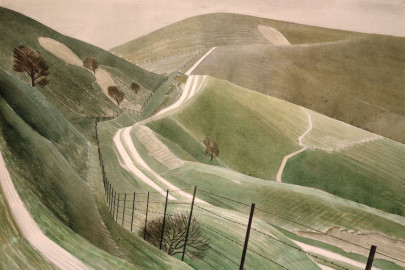Inevitably, The Golden Ocean (1956) – Patrick O’Brian’s first nautical novel – can only be discussed in the shadow of his epic and much-loved 20-book Aubrey-Maturin series. Newcomers will want to know if it provides a useful run-up to the biggie; devotees suffering withdrawal symptoms will want to know if it can act as a sort of O’Brian methadone hit – offering some comforting imitation, however pale, of the real deal.
The answer to the second question is yes; the answer to the first is that frankly you may as well just crack on right now with Master and Commander. But nonetheless The Golden Ocean is a fine book in its own right.
As a novel it offers something the unfinished Aubrey-Maturin series cannot: a single story arc with a satisfying conclusion. It’s a coming-of-age, there-and-back-again tale – but of course, this being O’Brian, there are layers.
The year is 1740 and the setting is the Centurion – a real historical ship which, under the command of George Anson, led a squadron on a mission to disrupt Spain’s Pacific fleet and trade. The true story is remarkable: in four years the Centurion circumnavigated the globe and captured an absurdly valuable Spanish galleon (when the prize money was divvied up along the complex naval lines, Anson got £91,000, which in those days was a lot of money: he’d only earned £719 in a Commodore’s wages during the four years at sea. And even the lowliest seaman earned the equivalent of 20 years’ salary). But Anson’s success came at a hideous price. Of the squadron’s six vessels only the Centurion returned to England; and over the course of the expedition, disease, battle and the cruel sea killed all but 188 of the original 1854 souls on board the ships.
The Golden Ocean’s protagonist is Peter Palafox, a young, dirtpoor Irish midshipman making his maiden voyage. Palafox’s extremely Irish Irishness is important: O’Brian reaps much wicked comedy from his naïve attempts first to reach the Centurion by land (he and his dim-witted companions are fleeced at the races on the way) and then to assert himself amongst his English peers. And Palafox’s foreignness also enables O’Brian to ‘translate’ the nautical jargon for the reader. In this sense he is rather kinder to the landlubber than in the Aubrey books, but he is as uncompromising as ever in other areas: I can think of few novelists who dish out deprivation and horror with such effective understatement. One chapter in particular, which opens with Palafox up to his waist in a flooded cabin, broken-ribbed, starving, scurvied, exhausted and surrounded by death, and then gets remorselessly worse, is unforgettable.
So, what of the O’Brian methadone hit? Well, there are clear antecedents to the big series. Anson shares many of Jack Aubrey’s finer qualities. The battle scene lacks something of the pounding excitement of the later books but the storm sequence is all you could wish for. There’s a running gag about the seaman’s disproportionate enjoyment of a terrible pun (you will, of course, remember the reception given to Maturin’s small joke about the Dog Watch being ‘curtailed’). More interestingly, we see the ship – that self-contained water-borne universe rich with politics, cruelties and rare kindnesses, which O’Brian is so peerless at creating – from the middle-class view of the midshipman’s berth, rather than from the captain’s cabin.
Why do so many of us love O’Brian? He does have a knack of recreating with uncanny truth the experience of social interaction. As in life, characters are introduced to us abruptly, giving a first impression. Then, over what seems like a long course of acquaintance, but which is in reality just a few skilful sentences scattered here and there, he shows us the whole of the man and gives us room to form our own sympathies. That, at any rate, is one of many reasons we emerge from an O’Brian novel as if from a vivid dream, rather than from a superior genre novel about mizzen masts and cannonballs.












what a great image you have now put in my head of legions of O’Brian fans shaking as they go cold turkey outside WHSmiths
That Golden Ocean was a wonderful view of the ship from the middle, instead of what we usually get from the captain’s point of view. And, of course, the whole adventure of walking off the farm to go to sea is very appealing, despite the horrors of sea life. As you point out, the utter realness of everything, both personal interaction and setting make you feel like you are reading a diary instead of a twentieth century imagining of an older time. I think it is O’Brian’s utter lack of explanation about anything that makes it seem so real, just like talking to someone from that time.
I read it a half dozen or so years ago. The impression it left me was that of an author who hadn’t quite hit his stride.
Excellent read, nonetheless.